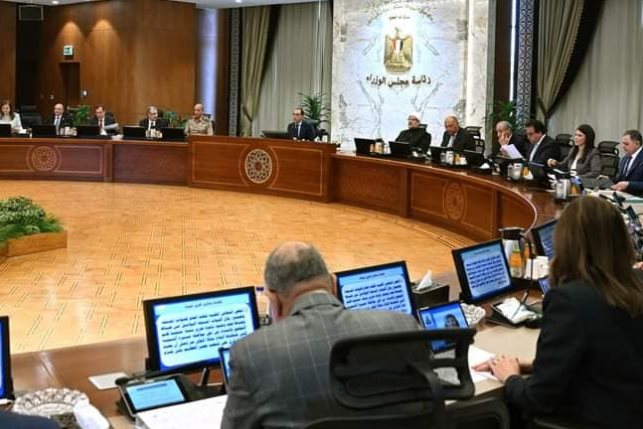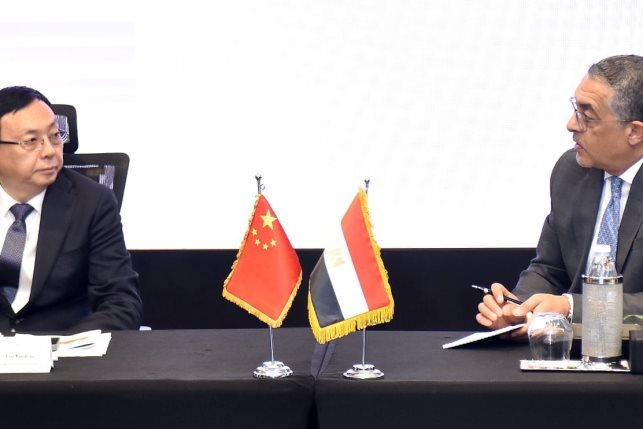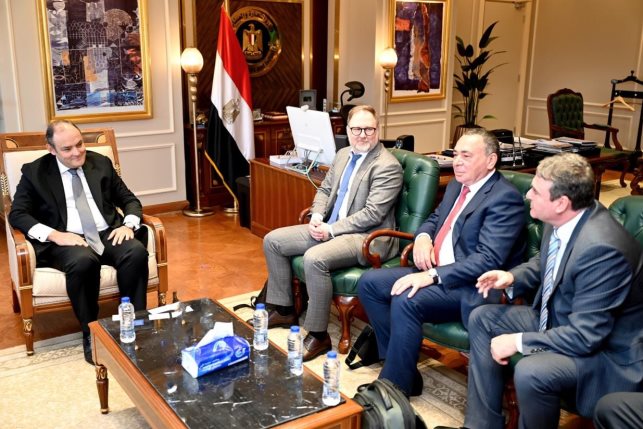Operationalizing sustainability with Kareem Yusuf, IBM’s GM of IBM Sustainability Software
Business Today Egypt met with Kareem Yusuf, General Manager of Sustainability Software at IBM, on the sidelines of this year’s COP27 to discuss integrating sustainability into everyday operations

The critical role of climate technologies in reducing greenhouse gas emissions and building resilience to the impacts of climate change is clear, with there already being significant progress on mitigating its effects. For many companies, both large and small, the question is simply “how?” – how can they adopt technology that will enable them to be more efficient and sustainable at the same time?
Business Today Egypt met with Kareem Yusuf, General Manager of Sustainability Software at IBM, on the sidelines of this year’s COP27 to discuss integrating sustainability into everyday operations.
As his first COP, Yusuf was struck by the scale of the location and people that came to “really focus on the critical issue [of climate change].”
“We've had a great experience participating in the crucial dialogues happening at COP27 and are grateful to Egypt for hosting and bringing together critical stakeholders from around the world at this pivotal moment. The magnitude of the event, the scale of the panels, and the quality of the conversations have been inspiring,” he told us.
“We are hopeful that the results of these discussions in Sharm El-Sheikh will have a positive impact on creating the necessary momentum on our collective work to bend the emissions curve and accelerate sustainability progress”
Named COP27’s Technology Partner, the company had a significant part to play at the conference. “IBM’s role [at COP27] is all about being part of the conversation. We are a technology provider, we’re technologists, and my focus has been on how we can leverage technology to help progress and address what I think are some of the key issues associated with sustainability,” Yusuf explained.
Translating words into actions
When asked about how the world can translate all these conversations into action, Yusuf explained that it all begins by solving the data visibility problem.
“Everyone needs to get started by getting a handle on their data,” he went on to say before expanding on IBM’s ESG data management platform and other solutions. Through the platform and solutions, companies are able to bring data together, do key analytics, derive insights, and therefore guide and inform decisions, Yusuf pointed out.
“[Consider] extending the lifetime of critical assets… sometimes it is actually all about avoiding the activities that generate carbon in the first place by changing and transforming how you maintain these key critical assets, [making replacing them] a heavier carbon load [and activity]”
“Think about rail lines; [there] is the issue of de-icing during the winter months which is typically done with propane burners. We were able to leverage technology to allow for better optimization based on weather conditions, environmental factors, and the like to [evaluate] how these de-icing activities should operate [in a way] that not only reduces energy cost and consumed but fundamentally reduces emissions in its own right,” Yusuf said.
The GM added that by aiming to reduce emissions and waste while optimizing operations and cost, companies will be able to integrate specific sustainability goals and reap its benefits.
IBM’s solutions are used in a variety of industries – from agriculture to transportation– enabling both private and state-owned entities with the ability to collect, verify, and manage data related to sustainability.
Recently, the company collaborated with e-finance, Egypt’s national developer of digital payment infrastructures. The collaboration allowed e-finance to leverage the latest IBM Power servers to reduce energy use, which offers 33% lower energy consumption compared to the previous generation (E980), and 52% lower energy consumption when comparing the previous generation of Power E880C servers.
Using data to drive results
Yusuf firmly believes in taking a data-driven approach, adding that linking and integrating sustainable actions into the company’s everyday business operations is essential to translating ambition into action.
“…If we are trying to advance how we all operationalize sustainability, how we begin to truly connect sustainability goals to everyday operations, then we all need to come together to have that conversation”
On how IBM uses these solutions internally, Yusuf revealed that “we are our own customer; we use the same technology that we promote to our clients. As an example, our Envizi ESG suite allows us to collect all our data from our various facilities so that we can get a good view on where we are in terms of energy consumption… enabling us to drive specific actions to achieve our 2030 goal of having 90% of our energy come from renewable sources.”
Explaining how the platform works, Yusuf said that the Envizi ESG suite enables companies to correlate information from various sources – including offices and commercial space, warehouses and factories – and record data through bills, electric usage, direct connection to smart meters and etc. Afterward, they are able to run analytics to search for outliers, find the reasoning behind their higher consumption, then problem-solve.
Another way IBM leverages its technology to promote sustainability is through its global pro bono social impact program, the IBM Sustainability Accelerator.
The program applies IBM technologies, such as hybrid cloud and artificial intelligence, and an ecosystem of experts to enhance and scale projects focused on populations vulnerable to environmental threats, including climate change.
BT spoke with IBM’s vice president of ESG and Corporate Social Responsibility, Justina Nixon-Saintil, earlier this year to discuss the accelerator’s launch in Egypt.
During COP27, IBM announced that Egypt’s Environment Without Borders Foundation (EWBF) will be joining the accelerator as a new member.





